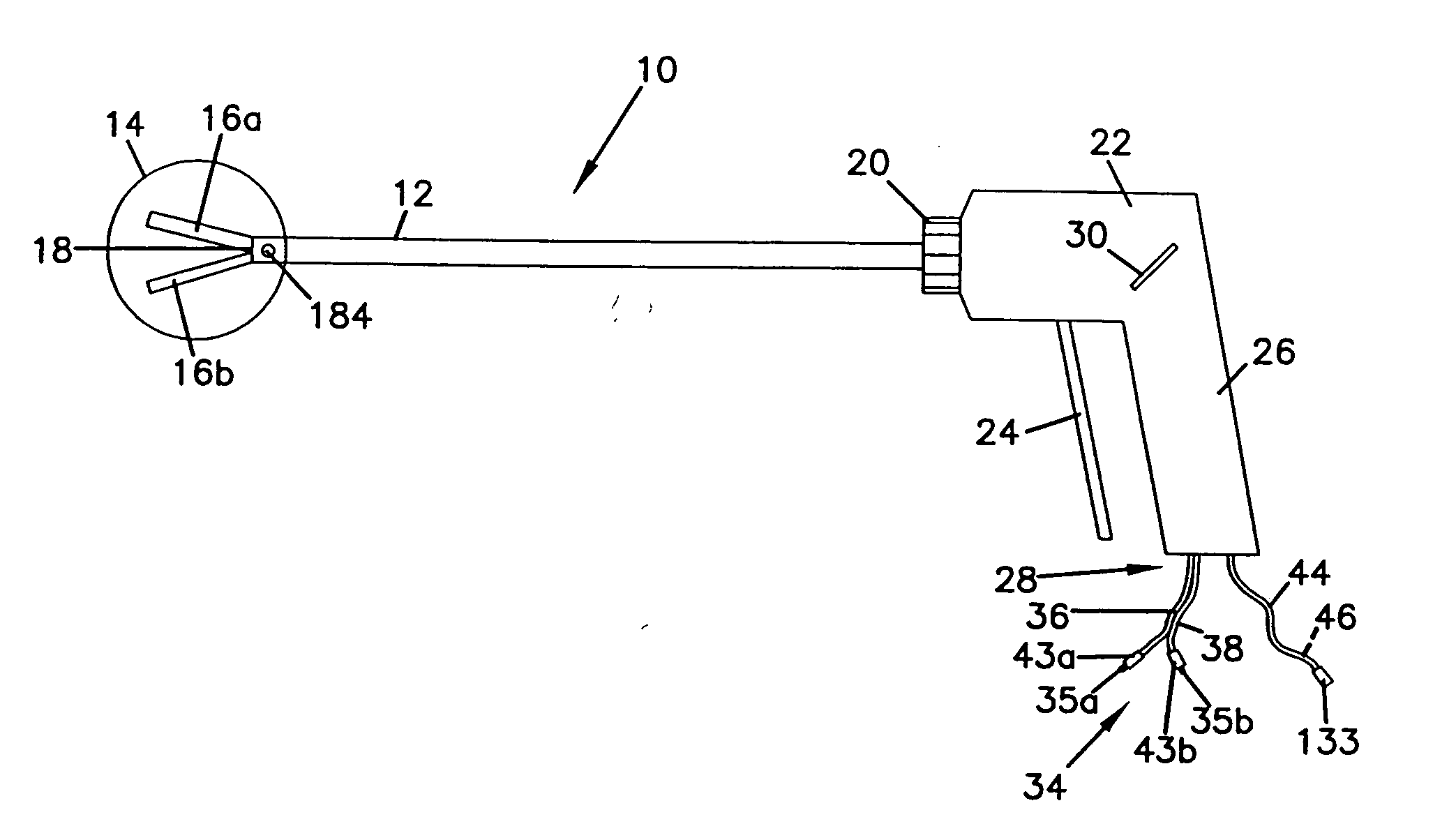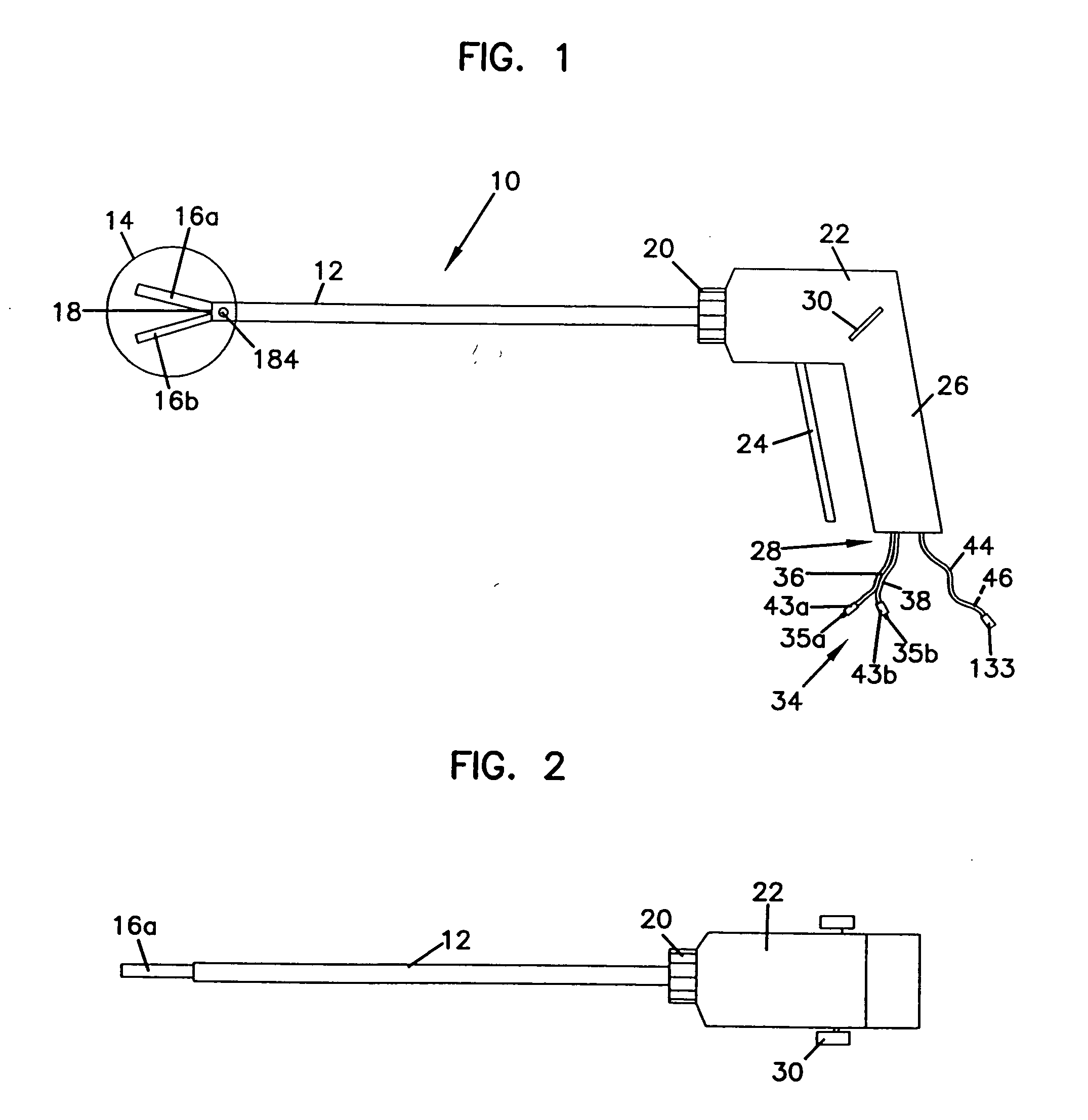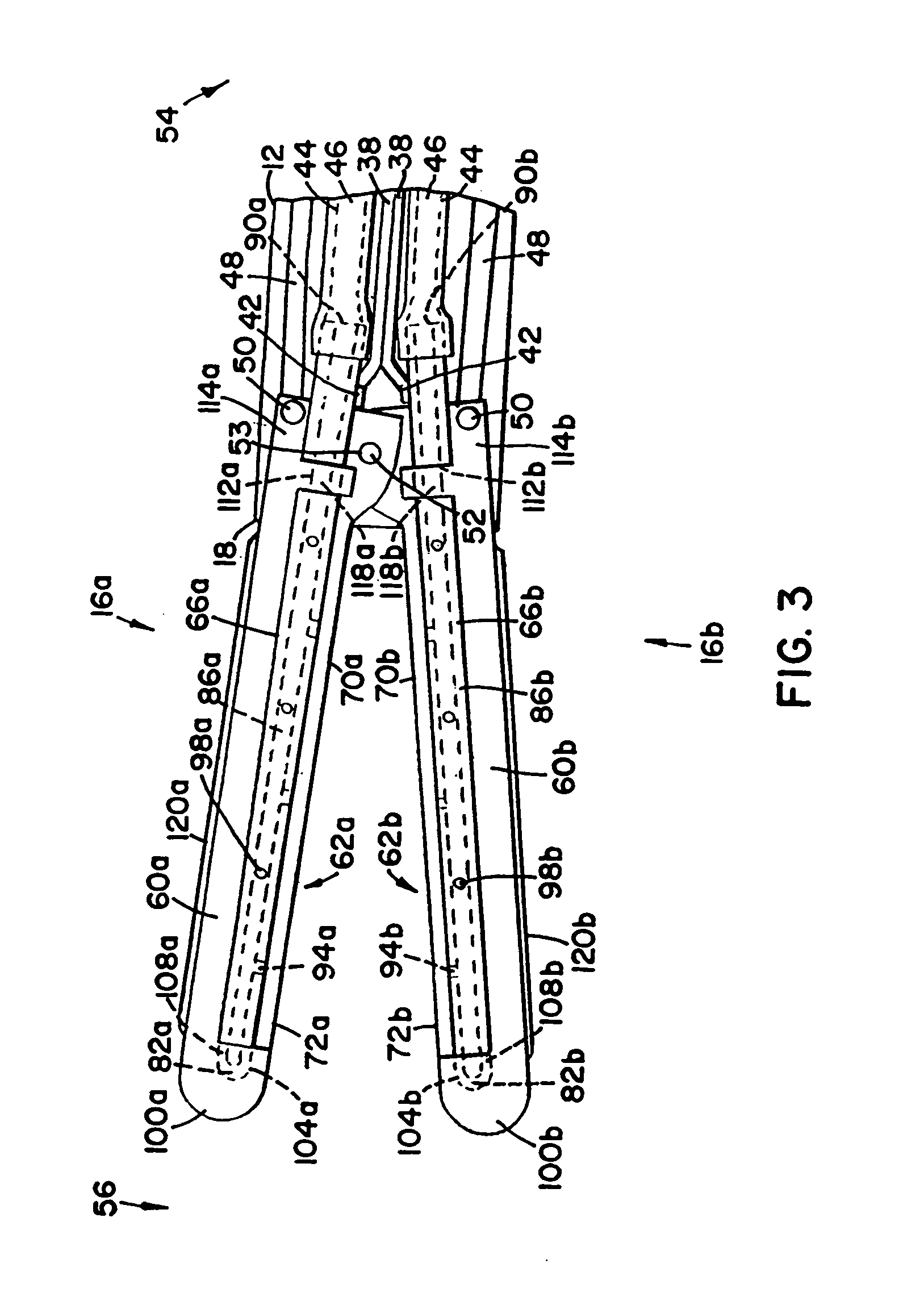Fluid-assisted medical devices, systems and methods
a technology of medical devices and fluids, applied in the field of electrosurgical devices, can solve the problems of untargeted adjacent tissue, untargeted adjacent tissue, tissue desiccation, etc., and achieve the effect of inhibiting tissue damage, increasing the uniformity of electrical coupling therebetween, and enhancing electrical coupling
- Summary
- Abstract
- Description
- Claims
- Application Information
AI Technical Summary
Benefits of technology
Problems solved by technology
Method used
Image
Examples
Embodiment Construction
[0088] Throughout the present description, like reference numerals and letters indicate corresponding structure throughout the several views, and such corresponding structure need not be separately discussed. Furthermore, any particular feature(s) of a particular exemplary embodiment may be equally applied to any other exemplary embodiment(s) of this specification as suitable. In other words, features between the various exemplary embodiments described herein are interchangeable as suitable, and not exclusive. Also, from the specification, it should be clear that any use of the terms “distal” and “proximal” are made in reference to the user of the device, and not the patient.
[0089] An exemplary electrosurgical device according to the present invention will now be described in detail. The electrosurgical device may be used with the system of the invention to be described herein. However, it should be understood that the description of the combination is for purposes of illustrating ...
PUM
 Login to View More
Login to View More Abstract
Description
Claims
Application Information
 Login to View More
Login to View More - R&D
- Intellectual Property
- Life Sciences
- Materials
- Tech Scout
- Unparalleled Data Quality
- Higher Quality Content
- 60% Fewer Hallucinations
Browse by: Latest US Patents, China's latest patents, Technical Efficacy Thesaurus, Application Domain, Technology Topic, Popular Technical Reports.
© 2025 PatSnap. All rights reserved.Legal|Privacy policy|Modern Slavery Act Transparency Statement|Sitemap|About US| Contact US: help@patsnap.com



